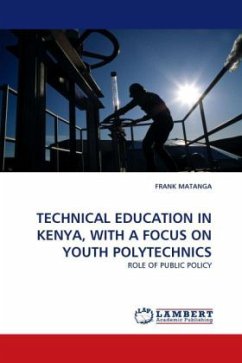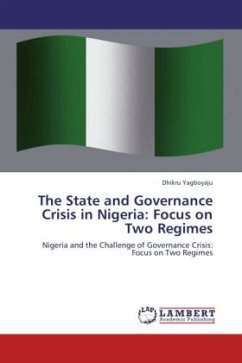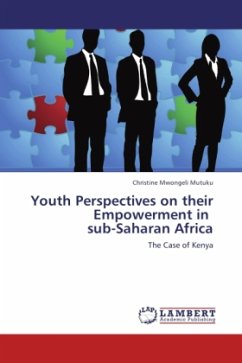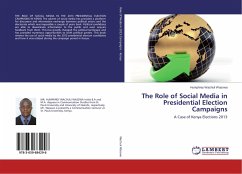
TECHNICAL EDUCATION IN KENYA, WITH A FOCUS ON YOUTH POLYTECHNICS
ROLE OF PUBLIC POLICY
Versandkostenfrei!
Versandfertig in 6-10 Tagen
32,99 €
inkl. MwSt.

PAYBACK Punkte
16 °P sammeln!
The nexus between education and development has for centuries preoccupied educationists and policy-makers. Kenya, like many other developing states in search for development, has not been left out of these debates. Immediately after independence, Kenyan policy-makers were already grappling with the high numbers of unemployment among the youth. Formal education, largely geared towards meeting the needs of the formal sector, was seen to be part of the problem. Consequently, the government of Kenya decided to streamline and strengthen vocational education whose roots lay in efforts made by the co...
The nexus between education and development has for centuries preoccupied educationists and policy-makers. Kenya, like many other developing states in search for development, has not been left out of these debates. Immediately after independence, Kenyan policy-makers were already grappling with the high numbers of unemployment among the youth. Formal education, largely geared towards meeting the needs of the formal sector, was seen to be part of the problem. Consequently, the government of Kenya decided to streamline and strengthen vocational education whose roots lay in efforts made by the colonial state. This gave birth to the founding of youth polytechnics meant to offer technical education of whose graduates would join the ranks of the self-employed. This was to translate into rapid rural development and reduce the rural-urban migration that was being witnessed in the countryside.This objective has been realized to some extent. However, key obstacles to its effective realization have revolved around the formulation and implementation of sound state policies that can address technical education and the informal sector as a whole.












